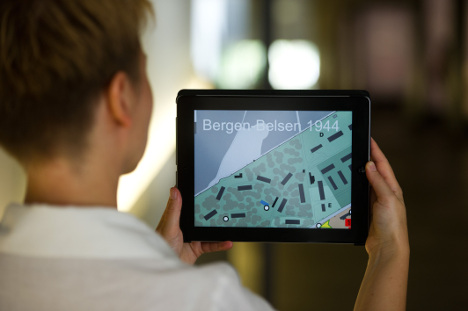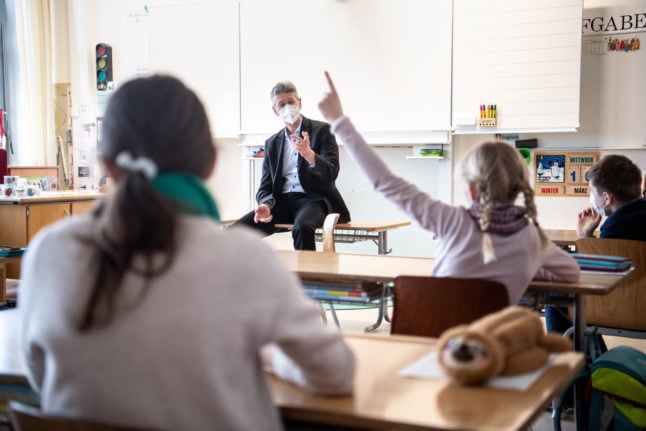“Germany's commemoration culture has developed positively in the last 20 years,” council head Josef Schuster told the Neue Osnabrücker Zeitung on Monday.
“There are only a few of the perpetrators' generation left and young people speak more freely about this topic.”
But he suggested that the Holocaust could more deeply be embedded in young people's imaginations by making a visit to a former concentration camp compulsory from Year Nine (15 years old).
“Theory and teaching are one thing, but concrete experience on the site, physical interaction, is another,” Schuster said.
That might be hard to achieve at some former camps, including Bergen-Belsen located 60 kilometres north-east of Hanover, where resources are already stretched.
“We get around 1,000 group visits a year, and around half are school classes,” museum spokesperson Stephanie Billib told The Local .
“We have to turn a lot away because we don't have the capacity to accompany them all.”
Billib said that as well as having to limit overcrowding, the Bergen-Belsen memorial was already at the limits of its budget just paying guides to accompany the present number of tours.
But she noted that new technology was helping them reach more of the young people who came to visit.
“For the last two years we've had a project testing out an iPad application,” she explains.

For Bergen-Belsen, the introduction of modern technology hasn't led to the same problems as at the former Nazi death camp at Auschwitz, now in Poland, where one young woman sparked outrage last year after taking a smiling selfie at the extermination camp site.
“Our experience is that young people have a lot of freedom to guide themselves around the site,” Billib said.
“They discover a lot more and learn more – and have more questions for us.
“As a digital non-native myself, this makes me happy, that we have such success with methods that are so well-known to them.”



 Please whitelist us to continue reading.
Please whitelist us to continue reading.
Member comments